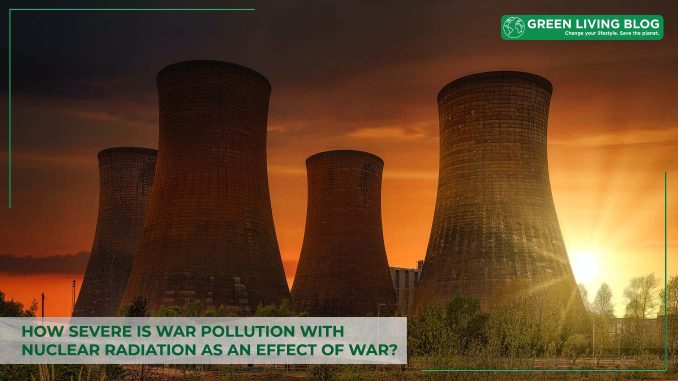
When we think of pollution, it’s more or less always about smokestacks from a dirty coal-fired power plant spewing thick black clouds from the top of the chimneys or 18-wheelers with misfiring engines on highways.
We seldom think of pollution when we see war unfold before us. Military activities are responsible for war pollution on an industrial scale.
Of course, there are grave concerns, such as providing food and shelter to refugees and survivors, organizing international aid, and ensuring that right triumphs over wrong.
But the time has come to cast a spotlight on the devastating environmental effects of war pollution.
Wars, Wars, Wars – Any Lessons Learnt?
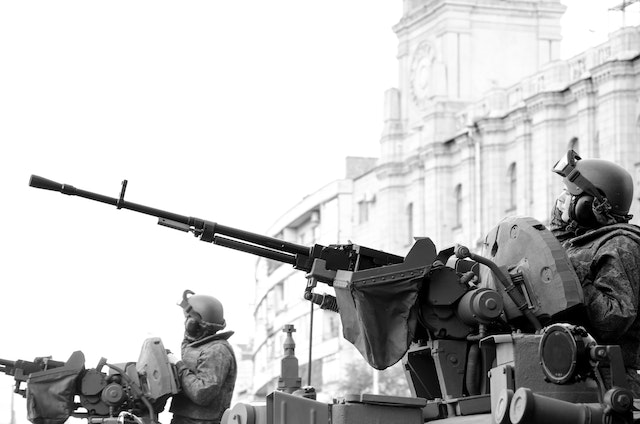
World War II is thought of as a significant turning point in human history. It led to the discovery of penicillin and antibiotics, nuclear power, computers (or at least machines that behaved like one), duct tape, synthetic rubber, the SUV, jet engines, and super glue.
There was great hope when the United Nations was formed in 1945 by 51 countries that humanity would evolve and choose never to fight again but resolve conflict amicably, considering that 85 million people died in the second World War and 28 million in the first World War.
It turned out to be wishful thinking. As the 18th-century German philosopher Hegel said, “what we learn from history is that we learn nothing from history”.
There have been terrible wars since then: the Korean War, Vietnam War, Yugoslav War, Chechen War, Syrian Conflict, Arab-Israeli Wars, India-Pakistan Wars, Soviet-Afghan War, and the US invasion of Iraq and Afghanistan.
2022 Russian Invasion Of Ukraine – We Have Not Learned
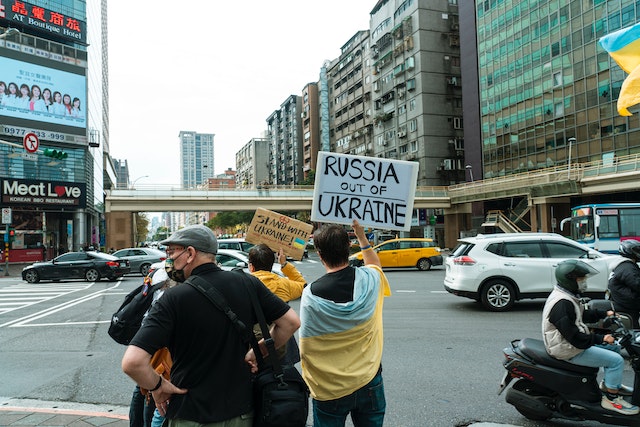
Do you ever think of war pollution when you think of the current Russo-Ukraine conflict?
In the summer of 2022, when the war was raging, and talking heads on television were agog with achievements of Bayraktar drones, the residents of the city of Brovary almost 20 km to the north of the capital Kyiv began complaining of a horrible smell.
In early March, Russian rockets devastated a food warehouse. Local civilians buried the contents of the warehouse, butter, meat, and vegetables, in large ditches. Nitrates and ammonia from rotting meat had leached into the ground and were behind the overpowering smell.
The smell was the least of the environmental problems as Russian artillery had started forest fires and torn apart old apartment buildings exposing the asbestos underneath. The shelling of Ukrainian cities has created thousands of tons of asbestos-contaminated rubble. Asbestos is a well-known carcinogen and prolonged exposure to the dust is extremely perturbing.
Impact Of War On The Natural Environment
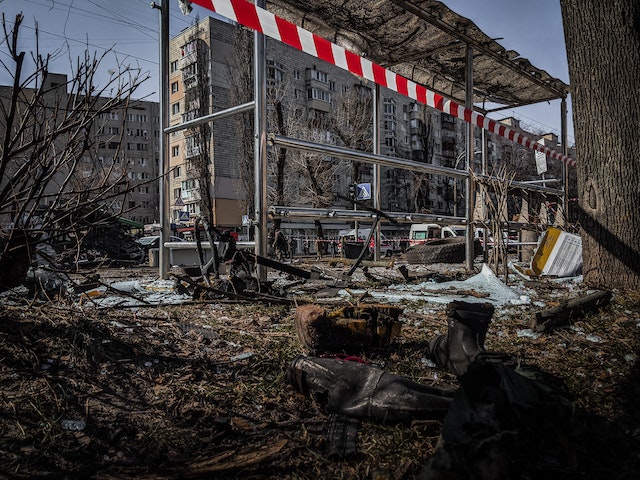
When war happens, it is terrible. Rarely can real-life data be collected from the battlefield.
When limbs are being torn apart and infants die from hunger and cold, the emphasis is elsewhere rather than the environment. Who thinks of war pollution when civilian lives are at stake?
When the war ends nothing remains except debris and a broken society. The noxious fumes of exploding munitions have cleared and there is no way to measure the environmental impact.
But a couple of instances in the last 50 years have had an excruciating effect. These were major wars that pulverized nature as never seen before or since. In these two scenarios, data from war pollution was well documented.
a. Vietnam War
War pollution first became a known issue during the Vietnam War.
Agent Orange was a mixture of deadly herbicides used by the US military in their fight against the North Vietnamese.
Much of this lethal cocktail was a chemical called dioxin.
Dioxin is a persistent organic pollutant. The name is rather self-explanatory. It continues to linger in soil and water.
Dioxin causes cancer, attacks the reproductive system, and paralyzes the immune system.
The toxic chemical does not disperse. It collects in the fatty tissue of animals and becomes a part of the food chain leading to birth defects, including cleft palate and mental disabilities, decades after its use.
According to the Red Cross, at least a million Vietnamese were exposed to Agent Orange and developed health problems. The Vietnamese government has claimed 4 million were exposed.
At least 150,000 birth defects over the last 50 years have been attributed to its use.
The US military did not target Agent Orange at humans but at the vegetation. The Vietnamese countryside was at the receiving end of 20 million gallons of the deadly toxic mix from the sky. Choppers and C-123 aircraft dropped it everywhere between 1962 and 1971 in the hope that the people would starve.
17.8% of the total forested area of Vietnam was affected. Dioxin has persisted in Vietnam and is still found in the soil. War pollution can persist generations after the conflict ends.
b. 1991 Gulf War
On 2nd August 1990, Iraqi forces invaded Kuwait. Saddam Hussein had had his eyes on the oil-rich neighbor for a long while.
In retaliation, a US-led force that included troops from the UK, Saudi Arabia, Egypt, France, UAE, Spain, Italy, and some others fended Iraqi expansion into the Middle East and drove back occupying Iraqi forces.
- During the war, US forces were accused of using Depleted Uranium or DE ammunition in anti-tank ordinances and 30 mm cannons. Though DE is less potent than Uranium-235, the health hazard created by the shells and cartridges cannot be overlooked. This was the second time in human history that radioactive materials (in any form) had been used to kill the enemy. Despite widespread public support, France, Britain, the Netherlands, the Czech Republic, Russia, China, the US, and Israel have held up any discussion at the UN about uranium munitions.
- In January-February 1991, Iraq dumped 400 million gallons of crude oil in the Persian Gulf. By the time the war ended in end-February 150 km of the Saudi coastline was literally knee-deep in oil slurry. Damage to hundreds of species of birds, sea turtles, and fish is impossible to estimate. At the same time, Iraq set fire to 800 Kuwaiti oil wells. Thick black smoke obscured the sun for months. This is the worst example of war pollution the world has seen. The effect was black-acid rain over Turkey and Iran.
Impact Of Nuclear War
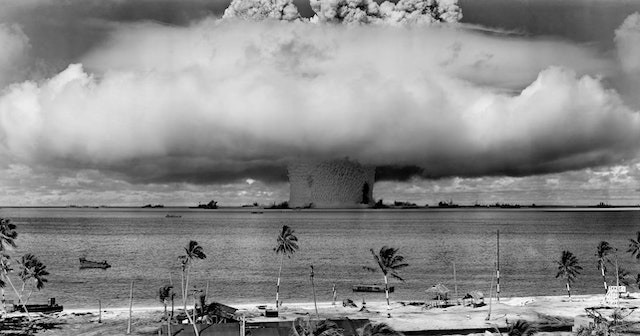
- At 8:15 on the morning of August 6, 1945, an atomic bomb exploded over Hiroshima. The Little Boy killed 140,000 by the end of 1945.
- At 11:02 AM on August 9, 1945, The Fat Man was dropped on Nagasaki. It killed 80,000 people.
- Throughout the 40s and 50s, the USA carried out 67 atomic tests in the Marshall Islands. Naturally, the generals and politicians at the Pentagon preferred to turn a blind eye to human suffering. The nuclear fallout has caused severe damage to the health of the islanders. The total output was 7000 times that of Hiroshima and has caused cancer to double in many parts of the islands. Radiation plagues this Pacific island 60 years after the tests ended with no end in sight.
Thankfully no one has used nuclear weapons in war after 1945. The Soviet Union last tested a nuclear device in 1990 and the USA in 1992. India and Pakistan conducted a few underground tests in 1998. North Korea persists with repeated tests in the last decade.
Nuclear weapons kill thousands instantly. A 100-kiloton weapon can wipe out a large city instantly. But after that annihilation will come bigger problems.
An atomic bomb and a hydrogen bomb are both nuclear devices. The former uses fission and has relatively less yield while the latter is a fusion bomb with unimaginable destructive power.
The bombed area must be abandoned for many years. War pollution is at its worst.
a. Radioactive fallout
Nuclear weapons also cause death by radiation (apart from instant annihilation). Radiation in high doses can kill from a week to several months later. Essentially radiation causes damage to our organs. Radioactivity can enter the food cycle when it contaminates groundwater. Products like dairy can be contaminated for years to come.
b. Mutations
Unlike the microwave, nuclear radiation is ionizing radiation that causes changes to DNA. The results are mutations and a host of reproductive problems. Mutations can cause tumors and cancerous growth two generations later.
Last Words
Inflation, climate change, carbon emissions, global hunger, and many more issues need to be solved. We cannot accommodate the damage to the environment due to wars anymore.
War delays our progress. War needs to end if we want to preserve our planet.
A wishful and innocent yet vital idea.
Our will and logic need to be stronger to resolutely prevent war and its terrible impact on the environment, society, and human lives.
Let us do all we can to live greener no matter the political challenges we face.
![]()
Author Profile
- Online Media & PR Strategist
- Blogger and Educator by Passion | Senior Online Media & PR Strategist at ClickDo Ltd. | Fascinated to Write Lifestyle Blogs in News & Education I have completed a journalism summer course at the London School of Journalism and manage various blogs.
Latest entries
 BusinessOctober 29, 2025Top 6 UK Government Green Funds & Grants for SMEs
BusinessOctober 29, 2025Top 6 UK Government Green Funds & Grants for SMEs List postOctober 16, 202510 Best Green Hosting Services in the UK
List postOctober 16, 202510 Best Green Hosting Services in the UK BusinessSeptember 9, 2025Top 5 Eco Certifications & Their Impact on Greener Businesses
BusinessSeptember 9, 2025Top 5 Eco Certifications & Their Impact on Greener Businesses LeisureSeptember 2, 2025Plant-Power: The UK’s Top 10 Vegan Festivals 2025
LeisureSeptember 2, 2025Plant-Power: The UK’s Top 10 Vegan Festivals 2025






Leave a Reply
You must be logged in to post a comment.